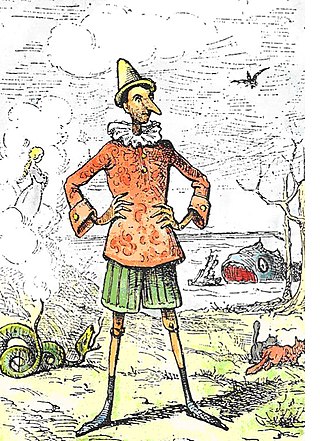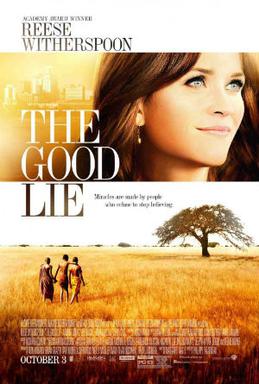
Nokia Corporation is a Finnish multinational telecommunications, information technology, and consumer electronics corporation, established in 1865. Nokia's main headquarters are in Espoo, Finland, in the greater Helsinki metropolitan area, but the company's actual roots are in the Tampere region of Pirkanmaa. In 2020, Nokia employed approximately 92,000 people across over 100 countries, did business in more than 130 countries, and reported annual revenues of around €23 billion. Nokia is a public limited company listed on the Helsinki Stock Exchange and New York Stock Exchange. It was the world's 415th-largest company measured by 2016 revenues, according to the Fortune Global 500, having peaked at 85th place in 2009. It is a component of the Euro Stoxx 50 stock market index.

A polygraph, often incorrectly referred to as a lie detector test, is a device or procedure that measures and records several physiological indicators such as blood pressure, pulse, respiration, and skin conductivity while a person is asked and answers a series of questions. The belief underpinning the use of the polygraph is that deceptive answers will produce physiological responses that can be differentiated from those associated with non-deceptive answers; however, there are no specific physiological reactions associated with lying, making it difficult to identify factors that separate those who are lying from those who are telling the truth.
Deception or falsehood is an act or statement that misleads, hides the truth, or promotes a belief, concept, or idea that is not true. It is often done for personal gain or advantage. Deception can involve dissimulation, propaganda and sleight of hand as well as distraction, camouflage or concealment. There is also self-deception, as in bad faith. It can also be called, with varying subjective implications, beguilement, deceit, bluff, mystification, ruse, or subterfuge.

Billy Liar is a 1959 novel by Keith Waterhouse that was later adapted into a play, a film, a musical and a TV series. The work has inspired and been featured in a number of popular songs.

A lie is an assertion that is believed to be false, typically used with the purpose of deceiving or misleading someone. The practice of communicating lies is called lying. A person who communicates a lie may be termed a liar. Lies can be interpreted as deliberately false statements or misleading statements. Lies may also serve a variety of instrumental, interpersonal, or psychological functions for the individuals who use them.

Take-Two Interactive Software, Inc. is an American video game holding company based in New York City founded by Ryan Brant in September 1993.
A microexpression is a facial expression that only lasts for a short moment. It is the innate result of a voluntary and an involuntary emotional response occurring simultaneously and conflicting with one another, and occurs when the amygdala responds appropriately to the stimuli that the individual experiences and the individual wishes to conceal this specific emotion. This results in the individual very briefly displaying their true emotions followed by a false emotional reaction.

LinkedIn is a business and employment-focused social media platform that works through websites and mobile apps. It was launched on May 5, 2003. It is now owned by Microsoft. The platform is primarily used for professional networking and career development, and allows jobseekers to post their CVs and employers to post jobs. From 2015 most of the company's revenue came from selling access to information about its members to recruiters and sales professionals. Since December 2016, it has been a wholly owned subsidiary of Microsoft. As of September 2023, LinkedIn has more than 930 million registered members from over 200 countries and territories.

TED Conferences, LLC is an American-Canadian non-profit media organization that posts international talks online for free distribution under the slogan "ideas worth spreading". It was founded by Richard Saul Wurman and Harry Marks in February 1984 as a technology conference, in which Mickey Schulhof gave a demo of the compact disc that was invented in October 1982. It has been held annually since 1990. It covers almost all topics—from science to business to global issues—in more than 100 languages. As of June 2015, more than 13,000 TEDx events have been held in at least 150 countries.
Crystal Dynamics, Inc. is an American video game developer based in San Mateo, California, and part of Embracer Group. The studio's games include entries in the Gex, Legacy of Kain, and Tomb Raider series.
Pathological lying, also known as mythomania and pseudologia fantastica, is a chronic behavior characterized by the habitual or compulsive tendency to lie. It involves a pervasive pattern of intentionally making false statements with the aim of deceiving others, sometimes without a clear or apparent reason. Individuals who engage in pathological lying often claim to be unaware of the motivations behind their lies.

Patrick Johannes Adams is a Canadian actor and director. He is known for playing Mike Ross, a college dropout turned unlicensed lawyer in USA Network's series Suits. For his role in Suits, Adams was nominated for Outstanding Performance by a Male Actor in a Drama Series at the 18th Screen Actors Guild Awards.

Troian Avery Bellisario is an American actress. A graduate of the University of Southern California, in 2010, she received her breakthrough role as Spencer Hastings in the Freeform drama series Pretty Little Liars (2010–2017), for which she received worldwide recognition and multiple awards and nominations.

Joe Belfiore is an American business executive who has held various roles at Microsoft since August 1990, mostly in the field of user experience. He is currently the Corporate Vice President in the Experiences and Devices division of Microsoft. A frequent speaker, Belfiore has appeared at many Microsoft conferences, often giving demos on stage. He has also hosted a TED Talk. Belfiore intends to retire from Microsoft early summer 2023.

The Good Lie is a 2014 American drama film written by Margaret Nagle and directed by Philippe Falardeau. The film stars Reese Witherspoon in the lead role, Arnold Oceng, Ger Duany, Emmanuel Jal, and Corey Stoll.

IllumiRoom is a Microsoft Research project that augments a television screen with images projected onto the wall and surrounding objects. The current proof-of-concept uses a Kinect sensor and video projector. The Kinect sensor captures the geometry and colors of the area of the room that surrounds the television, and the projector displays video around the television that corresponds to a video source on the television, such as a video game or movie.

The Lying Game is an American teen drama mystery television series developed by Charles Pratt Jr. It premiered on ABC Family on August 15, 2011, and ended on March 12, 2013. The series was produced by Pratt Enterprises, Alloy Entertainment, and Warner Horizon Television and is loosely based on a series of books of the same name by Sara Shepard. It stars Alexandra Chando, playing as the twin sisters Sutton Mercer and Emma Becker. On July 15, 2013, Chando confirmed the series was canceled by the network after two seasons.
Rada Mihalcea is a professor of computer science and engineering at the University of Michigan. Her research focuses on natural language processing, multimodal processing, and computational social science.
Jeffrey T. Hancock is a communication and psychology researcher and professor at the College of Communication Stanford University. Hancock is best known for his research in fields of deception, trust in technology, and the psychology of social media. Hancock has been published in over 80 journal articles and cited in National Public Radio (NPR) and CBS This Morning.
Pamela Milton is a fictional character from the comic book series The Walking Dead and the television series of the same name, where she is portrayed by Laila Robins.













